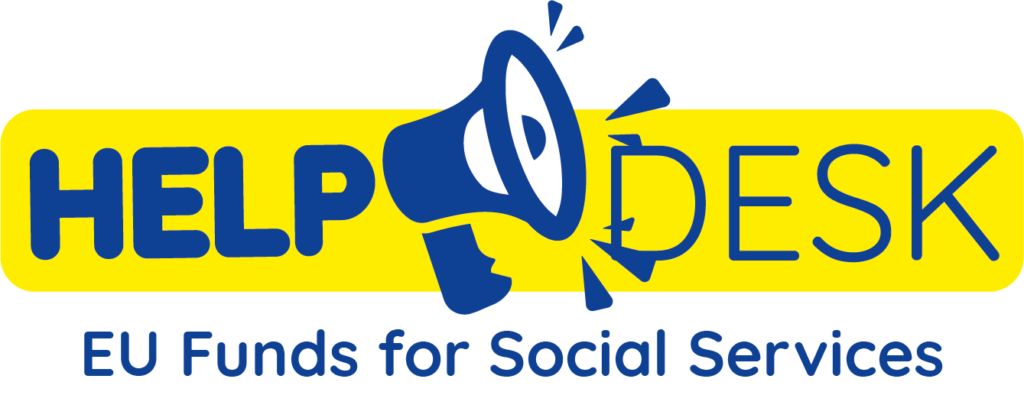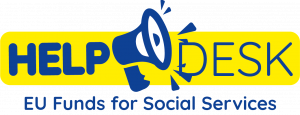Country profile – Greece – Programming period 2021-2027
General information
The profile below has been designed on the basis of the partnership agreement approved by the European Commission on 29 July 2021.
The National Development Program (NDP) for the period 2021-2027 is developed around five pillars (Policy Objective-SP):
- SP1. Smart Development
- SP2. Green growth
- SP3. Infrastructure Development
- SP4. Social development
- SP5. Extroversion
SP4 “A more social Europe through the implementation of the European Pillar of Social Rights” –
A more social Greece through investment in human resources and ensuring equal access to quality services and goods is a central objective of the interventions in FP4.
Structure of financial programs
The programming period 2021-2027 includes 22 programs (9 sectoral & 13 regional) supported by ERDF and EKT+, with the budget structured as follows:
Programs under FP4 as listed in the Partnership Agreement 2021-2027:
- “Competitiveness” program
- “Digital Transformation” Program
- “Civil Protection” Program
- “Environment and Climate Change” Program
- Transportation Program
- “Fisheries, Aquaculture and the Sea” Program
- “Human Resources and Social Cohesion” Program
- “Just Development Transition” Program
- “Technical Assistance and Beneficiary Support” Program
- 13 Regionally (Eastern Macedonia- Thrace, Central Macedonia, Thessaly, Continent, West Greece, West Macedonia, Central Greece, Peloponnese, Ionian Islands, North Aegean, Crete, Attica, Southern Aegean Sea)
In the context of SP4, the Human Resources Development-Education and Lifelong Learning sectoral program will implement actions related to employment, education and lifelong learning. Especially for Food Aid and Material Deprivation (EBYS) a separate priority axis will be created in the Human Resource Development-Education and Lifelong Learning Program. In the Regional Programs from SP4, projects for health, education, social welfare will be implemented by ERDF, and by EKT+ all actions for poverty and social exclusion (previously T.S.9) as during FP 2014-2020.
ERDF & EKT+ budget

In particular, with regard to the coverage of the minimum requirements defined in EKT+ and reflected in table 6.2, the following are noted:
- The percentage expected to be covered under the special priority for Youth Employment in the “Human Resources and Social Cohesion” Sectoral Program will amount to at least 14% of the country’s total available EKT+ budget. However, there will be assistance in the will of increased support for young people by monitoring the relevant field of intervention 134 both in actions of the Sectoral Program outside the targeted special priority, and in actions of other Programs during implementation, which will also be consistent with the National Action Plan Youth Guarantee.
- 28% of the Fund’s resources are expected to be directed to Social Integration, against 25% of the requirement. The actions planned to be implemented to combat child poverty will reach 8% against 5% (included in the 28% but also in inclusive education). The necessary concentration will be achieved by calculating the allocation of resources to specific objectives of the 14 Programs (for 28%) and code 6 of the ESF+ secondary dimension (for 8%). EN 34 EN
- To deal with material deprivation, twice the resources of the minimum requirement of the Regulation will be allocated, i.e. 6% instead of 3%. The Sectoral Program “Human Resources and Social Cohesion” will have a special priority with 6% of the ESF+ resources to address material deprivation.
- To support the social partners and civil society organisations, resources will be allocated to at least 0.65% of the ESF+, both under sectoral and regional programmes. Achieving the necessary concentration will be done by calculating a relevant amount in the ECB+ sub-dimensions table.
In addition, they will be financed by:
a) The TDM actions to deal with the socio-economic consequences of the transition, which is an important priority and requires interventions for the adaptation and development of human resources skills in professions and branches that are included in the overall diversified economic planning pursued by the DAM Program.
b) TAME actions that focus on short-term early integration (reception). The maximum possible synergy of the NSRF Programs with the Asylum, Migration and Integration Fund, the Internal Security Fund and the Fund for Integrated Border Management will be sought mainly through the National Coordination Authority, while double funding will be avoided by the single Management and Control System and the interoperability of integrated intervention monitoring information systems. In particular, regarding the synergy of Policy Objective 4 with TAME, TAME will mainly finance early social integration interventions with an emphasis on people living in first reception structures, while the NSRF will mainly finance medium/long-term social integration interventions of the YTX as well as the people with a migrant background.
c) ETHAUS actions to develop new skills and improve working conditions in the areas of CSR and Sustainable Blue Economy.
d) EAFRD interventions to support social integration, poverty reduction and economic development in rural areas. Combined actions that may concern the support of new agricultural enterprises, the strengthening of skills, the establishment of new farmers and the strengthening of agricultural-environmental-climatic measures are not considered necessary.
As regards culture, synergy will be sought with the Creative Europe Program (both at grant level and at the level of initiatives such as: European Heritage Sites, Capitals of Culture, Cultural Heritage Awards and Architecture Awards).
Thematic Concentration

FP4 Policy Options and Main Expected Results for ERDF and ESF+
A more social Greece through investment in human resources and ensuring equal access to quality services and goods in accordance with the principles of the European Pillar of Social Rights is a central objective of the interventions in FP4. Increasing human resource employment and improving employability through interventions to facilitate access to the labor market on the basis of individual needs and reduce the mismatch between supply and demand, with a focus on NEETs 15-29, long-term unemployed, unemployed with low and socio-economic, educational background, immigrants & beneficiaries of international protection and the disabled, is a key priority.
The redirection of active employment policies through the gradual transition to a new implementation model for PES at national level, with continuously available actions and strong personalized support, the strengthening of the diagnosis of labor market needs, the support of self-employment and skills development interventions of the unemployed will contribute to the achievement of the goal. The development of the social economy and social entrepreneurship will be promoted as part of active employment policies that will contribute to the social and economic inclusion of individuals and from vulnerable groups. The promotion of adaptation of self-employed, workers and businesses to change and active aging and through counseling and training interventions taking into account, among other things, the requirements of the digital and green economy, is put into focus. In order to promote the equal participation of women in employment, additional measures will be chosen to harmonize professional and family life and to promote innovative business models. In order to deal with extraordinary conditions in the labor market, support measures may be implemented.
Finally, special emphasis will be placed on greater safety and health at work at every age.
A key option is to increase the participation of adults in the learning process, upgrade the quality and strengthen the extroversion and relevance of Education at all levels and Lifelong Learning with the labor market. In this context, emphasis will be placed on the use of tools based on the individualized needs of adults, on the improvement of student performance, especially in modern knowledge and skills, on the utilization of new technologies, on the strengthening of professional guidance and counseling services, on the improvement of the quality of study programs and in strengthening the effectiveness of VET. In this direction, the strategic frameworks being developed for both VET and Education at all levels, Training and Lifelong Learning are coordinated at national level to monitor, evaluate and review skills development and address the issue anticipating and adapting skills needs in relation to the labor market and for all life stages. In addition, improving performance and strengthening equal access to and completion of quality and inclusive education and training at all levels, especially for disadvantaged groups, are the focus.
The creation and upgrading of infrastructure and equipment based on needs mapping and ensuring the quality of services, through the improvement of governance at all levels, the strengthening of autonomy, as well as the completion of the National Qualifications Framework, are also priorities.
The upgrading and modernization of social solidarity institutions and mechanisms is a key option with the aim of active inclusion, the reduction of income inequality, the risk of poverty with an emphasis on reducing child poverty, social exclusion and gender and other discrimination.
Ensuring increased access to quality basic and social goods and services, actions to address the educational and housing segregation of the most vulnerable population groups, including children, and the development of family and community-based care services are measures towards this direction.
At the same time, the modernization and creation of social protection infrastructures based on identified needs, as well as recreation, tourism and culture are expected to strengthen development, social integration and social innovation.
The ERDF investments in tourism and culture they will take into account the well-being of visitors, respect the natural and cultural environment and ensure the socio-economic development and competitiveness of destinations and businesses through an integrated and holistic approach.
A strategic choice is the promotion of deinstitutionalization interventions and the transition from institutional care to family and community-based care for children and people with disabilities as well as social integration for citizens of marginalized communities such as Roma, immigrants & beneficiaries of international protection, through addressing the to the detriment of discrimination, unsafe housing and their inclusion in education.
The institutional strengthening of social partners and civil society organizations for increased and substantial participation in education, employment and social inclusion interventions remains a strategic option.
The Catholic Health coverage as a basic option, it requires PHY as the focus of the health network in the community, emphasis on prevention in the context of active and healthy aging, institutionalized care for vulnerable and susceptible groups with a contribution to economic and social protection. Priorities are likewise Mental Health with an emphasis on the child and the elderly and the prevention of acclimatization, the upgrading of human resources skills, the new long-term care services, the adaptation of services, infrastructures and human capital to geographical, population specificities, e-health, addressing health threats based on needs mapping. The maintenance of the results is strengthened by investments in the SY in emergency care, special beds, rehabilitation, Public Health structures.
Digital transformation, improving the management and administration of services, contribute to universal access to quality services in a more efficient system. The current health crisis highlights the protection of public health as the foundation of social and economic cohesion and is a challenge for the development of resilience.
In the programs of European Territorial Cooperation (Interreg) health actions are foreseen.
Useful links
- ESF Actions Coordination and Monitoring Authority (EYSEKT) http://www.esfhellas.gr/en/Pages/default.aspx
- The PA (Partnership Agreement for the Development Framework) – ESPA https://www.espa.gr/en/Pages/default.aspx
- Programs – Funding Calls https://www.espa.gr/el/Pages/Proclamations.aspx
- Conference on Growth NEW PARTNERSHIP AGREEMENT 2021-2027: Thematic Sessions || 16.6 https://www.youtube.com/watch?v=Gj_m5HZlGyo
Co-funded by the European Union. Views and opinions expressed are however those of the author(s) only and do not necessarily reflect those of the European Union. Neither the European Union nor the granting authority can be held responsible for them.




